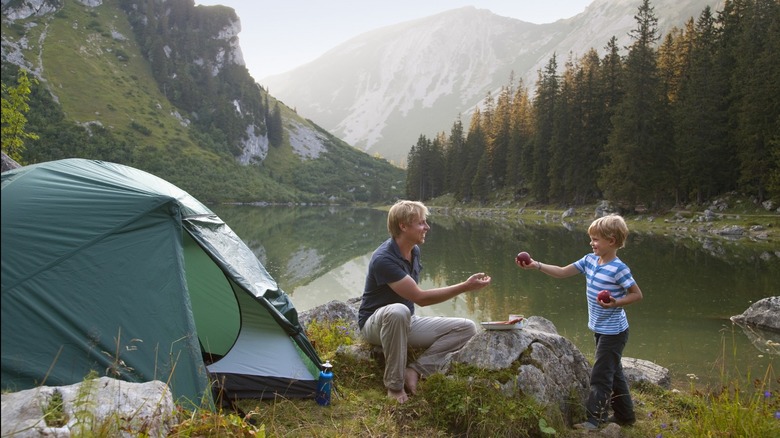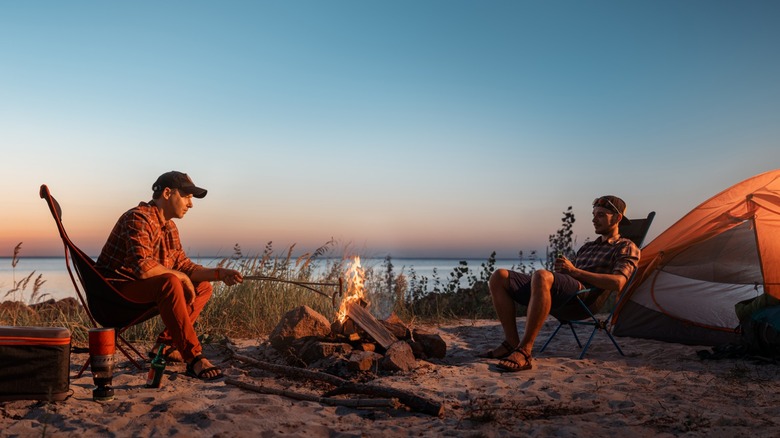Why Camping Near These Spots Is A Recipe For Bug Bites
Choosing where to pitch your tent is half the fun of any camping holiday. From rolling hills and distant mountains to woodland dells, there's nothing like that moment in the morning when you unzip the door to a breathtaking view of nature. Your choice of camping spot can influence how many bugs you have to contend with — especially if the location is damp, boggy, or next to water.
As well as being a natural breeding ground for mosquitos, water is a big draw for insects that thrive in wet and humid conditions. While standing water, such as ponds, canals, or lakes, has the greatest allure, especially if stagnant, any damp and soggy area will be a party zone for little creatures. It's also worth noting that long, dewy grass can be a popular spot. For example, chiggers and dense foliage or woodland are generally best avoided.
Of course, a source of fresh water can attract animals of a larger variety, too. Furthermore, a damp camping spot can lead to condensation on your tent, which is never a good thing, and on low-lying ground, where rainwater gathers, there's more risk of being flooded. Therefore, it makes sense to choose a spot that's a bit further away, higher up, and ideally with a gentle breeze, as species such as midges are not a fan of wind. In short, high and dry are the key words to remember.
Tips for keeping the bugs at bay
So, now that we've identified where to pitch our tent, what else can we do to keep bugs away while camping? First, store any food in sealed containers and dispose of leftovers quickly. It's also a good idea to keep artificial lights to a minimum, as this can be another big draw for insects, and maintaining the inner door of your tent closed is a must — unless you want to be batting off a buzzing bug just as you're snuggling up in your sleeping bag.
Also, whatever strategy you choose, there's bound to be a few insects around; this is their home, too, after all. So, it's worth keeping some natural bug repellent close at hand, lighting a few citronella candles around your camping spot, and you could also try throwing some herbs on the campfire, such as sage. Finally, if bugs tend to love you as much as they do us, you may wish to consider a different time of year for your trip or even a different destination.
When choosing your camping spot, while that lovely lake or that wild, grassy meadow might seem like an idyllic option at first glance, you might want to think twice. Well, at least that is, if you wish to avoid spending your camping holiday with some uninvited guests.

